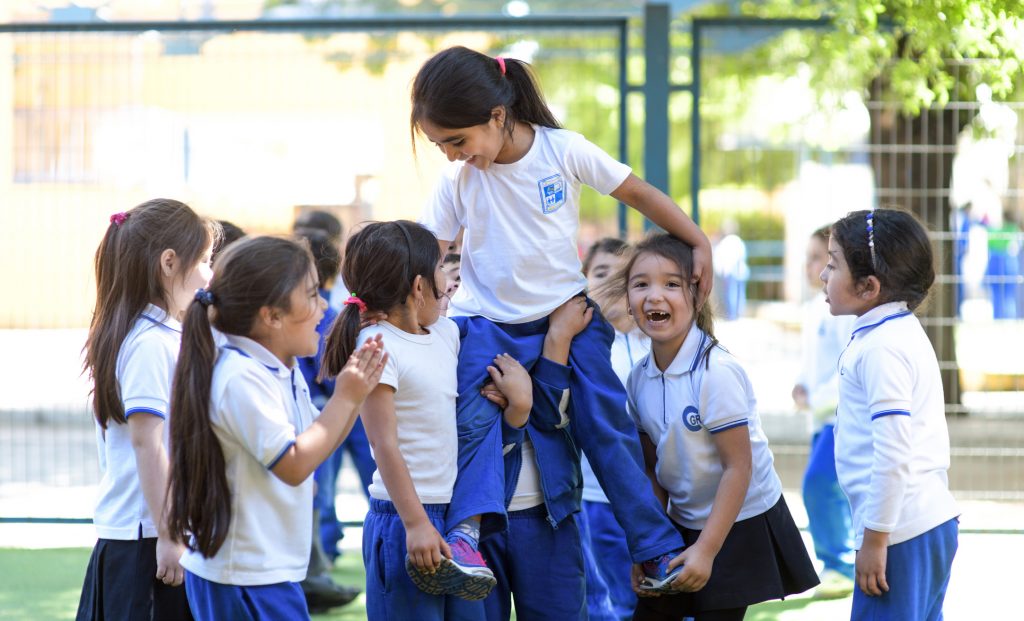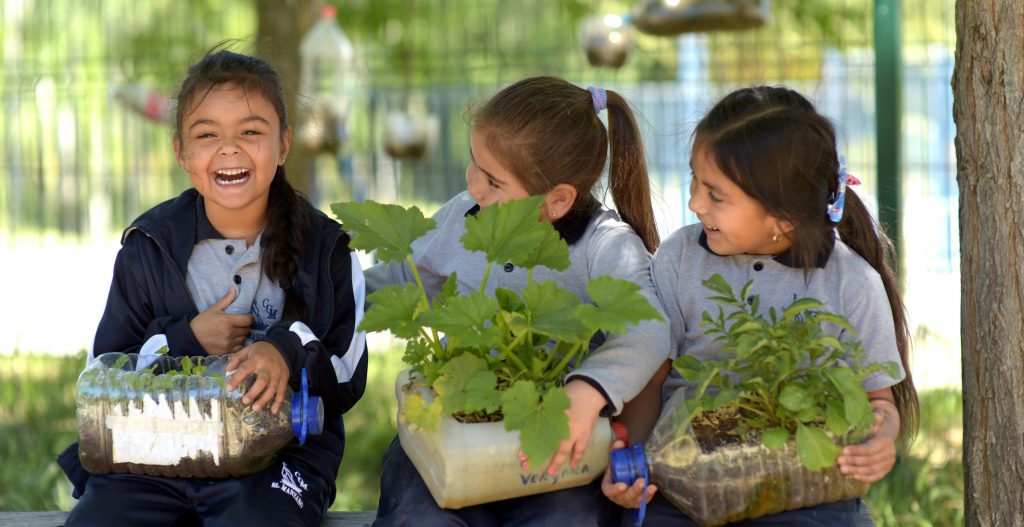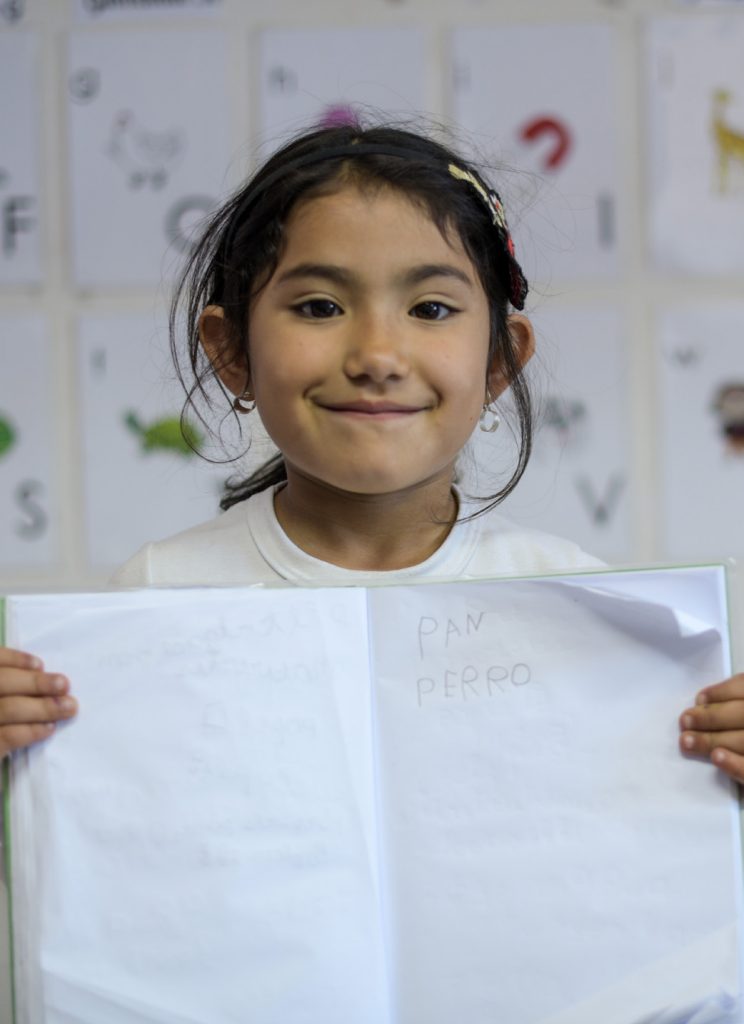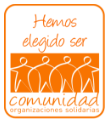Colegio San José has an enrolment of 106 students from pre-kindergarten to eighth grade and is located in the foothills of San Fernando, VI region. The pre-kindergarten is made up of 21 boys and girls, who at the beginning of the pandemic saw their learning interrupted by family contexts, the limited time and work of their parents, which is why they have had to be left in the care of grandparents or siblings, who often do not have the tools to accompany them. The school detected this situation and implemented Parent Tutors, an initiative that, thanks to the collaboration between teachers and parents, has benefited the students who have most needed support in the crisis.

"For our school, this period has been an impactful process," says Ernestina Riquelme, the school's principal. "Especially because of the wear and tear it has meant to contain our students, parents, but also our teams.
Danae Albornoz is the guardian of her cousin, who attends pre-kindergarten at Colegio San José, but she is also the guardian of her daughter, who attends first grade, and helps her brother, who is in fourth grade. Her cousin lives with her grandparents, Danae's parents, but she has to support them because they are elderly: "It has been hard to adapt to the suspension of face-to-face classes and it has complicated the organisation of my family, especially because my parents are taking care of my cousin and my younger brother and are not familiar with technology.
"No one was prepared for a pandemic," says Victoria Galaz, a kindergarten technician at the school.
From the beginning, says Ernestina Riquelme, they understood that implementing an online teaching modality was not within the school's possibilities: "We were very clear that, given the socio-cultural and economic level of our parents and guardians, but also because of the geographical characteristics of our locality, we were not going to be able to work remotely via the internet".

After the suspension of face-to-face classes, the school began to plan and send material via WhatsApp, but quickly realised that while the application was the primary means of connecting with parents in the early grades, it did not translate into children having access to the activities sent via WhatsApp.
"WhatsApp has helped us to stay connected with families," says Victoria Galaz, "but when we started sending out the guides, we realised that a large number of parents did not have permanent internet on their phones, that they only recharged their phones from time to time or, as some parents were away from home working, the children did not always receive the activities.
"Downloading the guides required parents to have internet or phone credit," says the principal of Colegio San José, "and, obviously, that began to mean an expense that families could not afford.
"It was a problem because some parents, due to the confinement, did not go out to recharge their phones and we lost track of them. We hadto follow up to see what was happening with them and exhaust all means to contact them," adds Victoria Galaz.
The school then decided to implement a second stage, which involved the educational team visiting the homes every 15 days, taking all sanitary precautions, to give them materials and provide accompaniment.

This strategy was complemented by the recording of capsules that the educators began to send to their students, with the aim of not losing contact with those they had not yet managed to reach:
"We started by recording short presentations and tips for our students, so that they wouldn't lose at least eye contact with us," says Victoria Galaz. "Then we continued with the recording of stories, where we used UBC tools: telling the book twice with the summarising and predicting strategies, while Maria, the other educator, was in charge of designing the capsule for vocabulary and emergent writing.
While the visits by the teaching team and the design of capsules were beginning to yield results and increase the sending of evidence from the students, they felt that a visit every two weeks was not enough: "We realised that daily accompaniment for the younger children was essential and, given that often the schooling of our parents does not allow them to help their children in the educational sphere in an adequate manner, we began to work collaboratively with parents who were able to be a daily support for these children".
"We started with five parents for pre-kindergarten and kindergarten," says Victoria Galaz. "The objective was that, depending on where the children lived, the parent tutors could make a short daily visit to help them with the activities, not to lose the connection with the families we couldn't reach and to collect evidence of the work they were doing.
"To support my cousin and my brother, on the one hand, it has been very important to replicate the game-based routine that I had implemented with my daughter," says Danae Albornoz, "but also the recordings with the tips sent to us from the school have been a roadmap during this process.
"Parent Tutors has been fundamental," says director Ernestina Pérez, "from the 40% response rate we had from children in May, today we have close to 90% of children sending in evidence. Without a doubt, it is an initiative that unites the community and we want to continue developing it.
This initiative is part of the document "Early Education: 6 Innovations in times of Covid-19" that you can download in full at the following link https://bit.ly/3eokQoC





